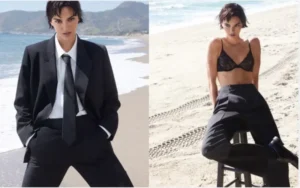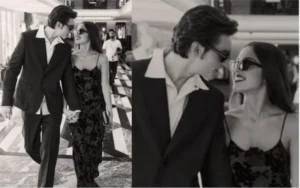One of today’s most amazing celebrity scandals centers on Sean “Diddy” Combs, a media and business mogul who has long been a fixture in the public eye. But now, for reasons beyond a mere notoriety of fame, Combs captivates the public’s attention as a figure at the heart of a stunning federal investigation—an investigation that threatens to compromise not only his previously untarnished public persona but also the conservatorship of his massive fortune. Hours after his arrest, also an astonishing development for a gentleman of his stature, a federal prosecutor in the Southern District of New York unsealed a 17-count indictment. The prosecutor outlined a dark scenario of alleged wrongdoing that Combs and others supposedly engaged in over a period of several years.
For many years, the federal indictment claims, Diddy had a dark side. He allegedly controlled and coerced women—among many others—around him to satisfy not only his, but their vile desires, too, while he purportedly worked hard to maintain a facade of a clean, lovable public image.
The documents describe in clean, clear prose that Diddy “relied on the employees, resources, and influence of the multifaceted business empire that he led and controlled.” The indictment also claims that Diddy was the head of a criminal enterprise. It was involved in some unique, not-so-nice activities: kidnapped labor, forced labor, and “peculiarities” related to bribery and obstruction of justice.
Agnifilo is absolutely sure Diddy is ready to fight the case against him. And who wouldn’t be with a fresh-faced, top-tier legal team that exudes confidence? The question becomes all the more engaging, however, when we consider that this case isn’t Diddy’s first brush with the law. Agnifilo and company have a mountain of good reasons on which to stake their bet that Diddy will beat this rap. Of course, not all reasons are good. And not all defendants with good reasons beat the rap. Still, the case against Diddy, when viewed through the lens of law, appears quite weak.
The convoluted case has another equally shocking and seemingly unrelated side. A Michigan judge ordered Diddy to pay more than a million dollars to Derek Lee “Cardello” Smith as the result of a lawsuit. Smith claimed that in 1997, Diddy drugged him and then sexually assaulted him. While Smith’s lawsuit is having significant courtroom consequences for Diddy, it is also sending ripples affecting Diddy’s commercial and personal lives in all sorts of ways yet to be fully understood.
The vast empire he built—a signifier of achievement in the realms of music, fashion, and culture—now stands on the precipice of an uncertain future. The industry, diehard fans, and various stakeholders hold their collective breath as the unfolding narrative either substantiates a staggering fall from grace or bolsters the reputation of a man who changed the course of entertainment history. How? The world’s eyes are glued to this unfolding courtroom drama—sometimes referred to as a “shakedown” by Diddy’s camp—that raises serious questions about the merits of the case against him and, more importantly, what alleged nighttime misadventures might mean for his oh-so-public daytime persona.




